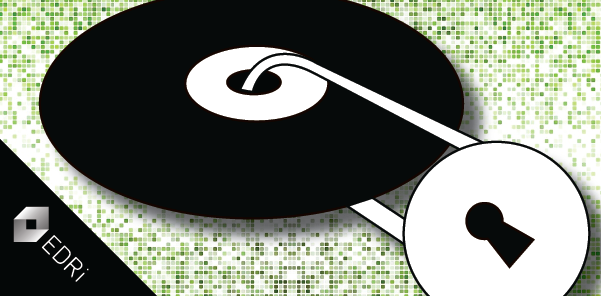Portugal bans use of DRM that limits access to public domain works
With the tendency of becoming too accustomed to bad news on copyright, it is refreshing to hear that Portugal has recently passed a law that helps to strike a fairer balance between users and copyright holders on digital rights management (DRM).
The law does not abolish legal protection for DRM altogether – unfortunately, that would not be possible for Portugal to do unilaterally, because it would be inconsistent with European Union law and with the World Intellectual Property Organisation (WIPO) Copyright Treaty to which the EU is a signatory. However, Law No. 36/2017 of 2 June, 2017, which entered into force on 3 June, 2017, does grant some important new exceptions to the law’s anti-circumvention provisions, which make it easier for users to exercise their rights to access content without being treated as criminals.
The amendments to Articles 217 and 221 of Portugal’s Code of Copyright and Related Rights do three things. First, they provide that the anti-circumvention ban does not apply to circumvention of DRM in order to enjoy the normal exercise of copyright limitations and exceptions that are provided by Portuguese law. Although Portugal does not have a generalised fair use exception, the more specific copyright exceptions in Articles 75(2), 81, 152(4) and 189(1) of its law do include some key fair uses; including reproduction for private use, for news reporting, by libraries and archives, in teaching and education, in quotation, for persons with disabilities, and for digitising orphan works. The circumvention of DRM in order to exercise these user rights is now legally protected.
Second and perhaps even more significantly, the law prohibits the application of DRM to certain categories of works in the first place. These are works in the public domain (including new editions of works already in the public domain), and to works published or financed by the government. This provision alone will be a boon for libraries, archives, and for those with disabilities, ensuring that they never again have to worry about being unable to access or preserve works that ought to be free for everyone to use. The application of DRM to such works will now be an offence under the law, and if DRM has been applied to such works nevertheless, it will be permitted for a user to circumvent it.
Third, the law also permits DRM to be circumvented where it was applied without the authorisation of the copyright holder. From now on, if a licensee of a copyright work wishes to apply DRM to it when it is distributed in a new format or over a new streaming service, the burden will be on them to ask the copyright owner’s permission first. If they do not do that, then it will not be an offence for its customers to bypass the DRM in order to obtain unimpeded access to the work, as its copyright owner may well have intended.
If there is a shortcoming to the law, it is that it doesn’t include any new exceptions to the ban on creating or distributing (or as lawmakers ludicrously call it, “trafficking in”) anti-circumvention devices. This means that although users are now authorised to bypass DRM in more cases than before, they’re on their own when it comes to accomplishing this. The amendments ought to have established clear exceptions authorising the development and distribution of circumvention tools that have lawful uses, rather than leaving users to gain access to such tools through legally murky channels.
Overall though, these amendments go to show just how much flexibility countries have to craft laws on DRM that strike a fairer balance between users and copyright holders – even if, like Portugal, those countries have international obligations that require them to have anti-circumvention laws. EDRi member Electronic Frontier Foundation (EFF) applauds Portugal for recognising the harmful effects that DRM has access to knowledge and information, and hopes that these amendments will provide a model for other countries wishing to make a similar stand for users’ rights.

Copyright reform: Document pool
https://edri.org/copyright-reform-document-pool/
Copyfail #9: Digital Rights Management (DRM): Restricting lending and borrowing books and music in digital format (20.07.2016)
https://edri.org/copyfail-9/
(Contribution by Jeremy Malcolm, EDRi member Electronic Frontier Foundation (EFF), USA; Adaptation by Maren Schmid, EDRi intern)


